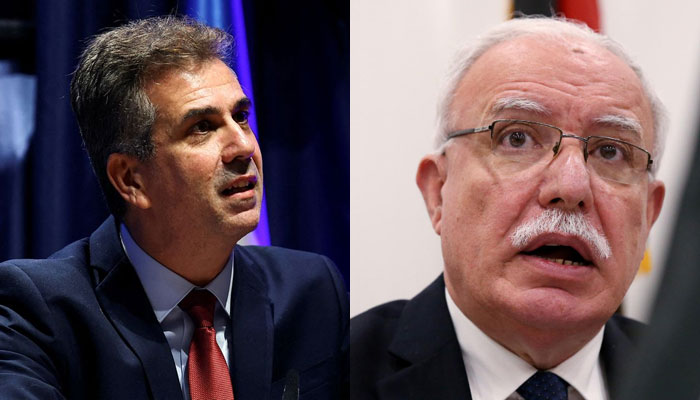Israeli and Palestinian Foreign Ministers Address Urgent EU Meeting: Recent Developments and Stance on Aid
In a rapidly evolving diplomatic landscape, Israeli Foreign Minister Eli Cohen and Palestinian Foreign Minister Riyad al-Maliki are set to participate in an emergency European Union (EU) meeting convened by Josep Borrell, the EU’s chief of foreign policy. This crucial gathering, scheduled for Tuesday, aims to address pressing concerns amid heightened tensions in the region. Let’s delve into the details of the meeting and the complex dynamics surrounding it.

The Emergency Meeting: Format and Purpose
The meeting is designed as a hybrid event, blending video conferencing and in-person attendance to facilitate dialogue between key stakeholders. It comes in response to a recent and unexpected attack by Hamas, an event that has stirred significant international attention.
EU’s Condemnation of the Hamas Attack
The European Union has unequivocally condemned the assault on Israel by Hamas. However, the EU’s stance on its development aid to the Palestinians has generated some confusion within the diplomatic community.
EU’s Position on Development Aid
Initially, statements made by Oliver Varhelyi, the commissioner responsible for neighborhood policies, had indicated that the EU would immediately halt “all payments” to the Palestinians. This sparked concerns about the future of financial support to the Palestinian territories.
The EU’s executive branch has since clarified its position. While payments have not been suspended, the European Commission is conducting a thorough review of substantial development aid, amounting to hundreds of millions of euros (dollars). This aid makes the EU the largest donor to the Palestinian territories.
The objective of this review is to ensure that these funds do not inadvertently support “any terrorist organization engaged in attacks against Israel.”
Continued Humanitarian Aid
It’s essential to note that the European Union continues to provide humanitarian aid to Palestinians in emergency situations. This support underscores the EU’s commitment to alleviating suffering and ensuring the well-being of the Palestinian people.
EU Member States’ Divergent Views
Within the EU, member states hold differing opinions on the issue of development aid for the Palestinians.
Germany, a significant economic force within the EU, has temporarily suspended its development aid to the Palestinians, reflecting a cautious approach in light of recent events. In contrast, France has voiced opposition to the idea of discontinuing EU funds, emphasizing the importance of maintaining financial support.
Broader Regional Concerns
As the EU meeting unfolds, concerns persist regarding the potential escalation of conflict in the region. Israel is contemplating a ground incursion into Gaza, a densely populated area from which Hamas launched its recent attacks via land, air, and sea.
Tragically, the death toll in Israel has surpassed 900, marking this as the deadliest attack in the country’s 75-year history. In parallel, Gaza authorities have reported the loss of 687 lives in retaliatory bombings.
Furthermore, Israel has confirmed the recovery of the bodies of 1,500 Hamas fighters from towns near Gaza, reflecting the intensity of the recent clashes.
Conclusion
The upcoming EU meeting involving Israeli and Palestinian foreign ministers underscores the urgency of the situation in the region. As diplomatic discussions unfold, the EU’s stance on development aid remains a focal point of debate. Amidst these challenges, the international community watches closely, hoping for diplomatic resolutions that can ease tensions and contribute to lasting peace in the region.
- Do You Want to Get a PAN Card? Know How to Apply and Required Documents
- The Journey Towards $100K and Beyond Begins?
- Enjoy Violet & Daisy: Stream on Amazon Prime Video and Peacock
- Cha Eun-Woo Steps into Kim Nam-Joo’s Drama: An Intriguing Twist Unfolds
- Deadpool 3 & Wolverine Super Bowl Trailer Easter Eggs
- Unveiling the Secrets of the Nagi Nagi no Mi in One Piece